Thousands march in Birmingham for 'Walkout Wednesday'
- Published

Up to half a million people are taking part in various strikes on Wednesday
Thousands of demonstrators gathered in Birmingham city centre and locations across the Midlands to take part in a UK-wide day of industrial action.
In what has been dubbed 'Walkout Wednesday', teachers, civil servants, higher education staff and bus and rail workers took part in strikes.
The government warned people to be prepared for significant disruption.
The rally was organised in response to government plans to enforce a minimum service during strikes.
The proposals, which would mean some employees would be required to work during industrial action or risk being sacked, were backed by MPs on Tuesday.
However opponents criticise it as an attack on the right to strike.
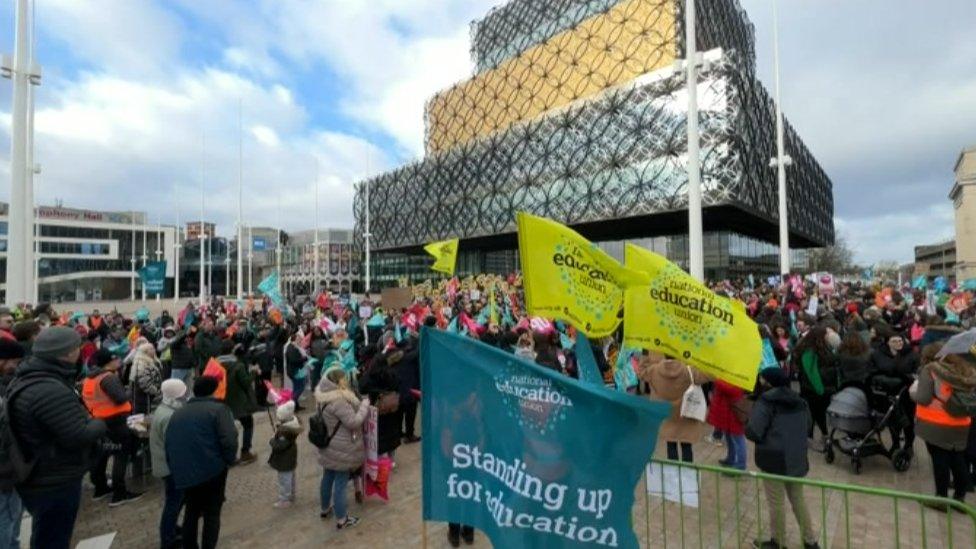
About 1,000 people gathered at Birmingham's Centenary Square on 'Walkout Wednesday'
About 1,000 people from a number of trade unions gathered at Birmingham's Centenary Square on Wednesday with placards, signs and banners.
Ryan Toal, of King Edwards VI Sheldon Heath Academy, told BBC Radio WM: "We have been noticing children not getting the education they deserve.
"We are seeing families in some of the most deprived areas being failed by the system.
"As professionals, we have to stand up for those who can't stand up for themselves."
During the city centre rally, Joe, a teacher from Birmingham, told the BBC: "Students are being stifled by consistently having agency workers coming in to take lessons.
"We need as many teachers to be in work, and to be able to access work, as much as possible."
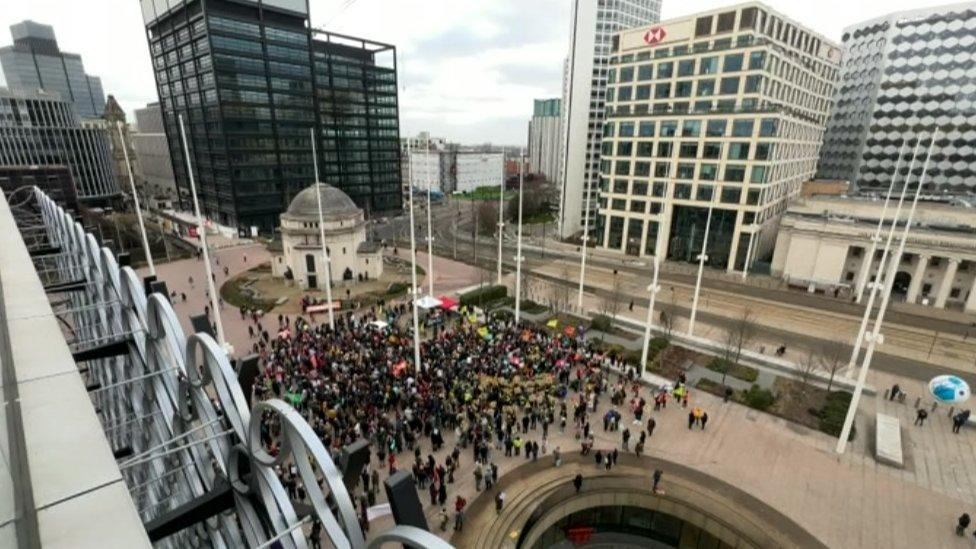
Teachers, Border Force staff, civil servants, train and bus drivers and university lecturers have walked out
Workers also gathered at picket lines outside schools and train stations across the city and the West Midlands.
As many as 23,000 schools are thought to have been affected by the teachers' strike, the National Education Union (NEU) said, although the extent of disruption has varied.
The row is over pay and conditions. Although most state school teachers in England and Wales had a 5% pay rise in 2022, unions say this amounts to a pay cut because inflation is over 10%. In Scotland, teachers rejected a 5% increase.
Education Secretary Gillian Keegan said the majority of schools would be open in some form and "inflation-busting pay rises" for teachers were unrealistic.
She told the BBC's Today programme that spending is currently not above what it was in 2010 in real terms, but that it would be once the promised £2bn for schools in England comes into effect.

Follow BBC West Midlands on Facebook, external, Twitter, external and Instagram, external. Send your story ideas to: newsonline.westmidlands@bbc.co.uk
Related topics
- Published1 February 2023
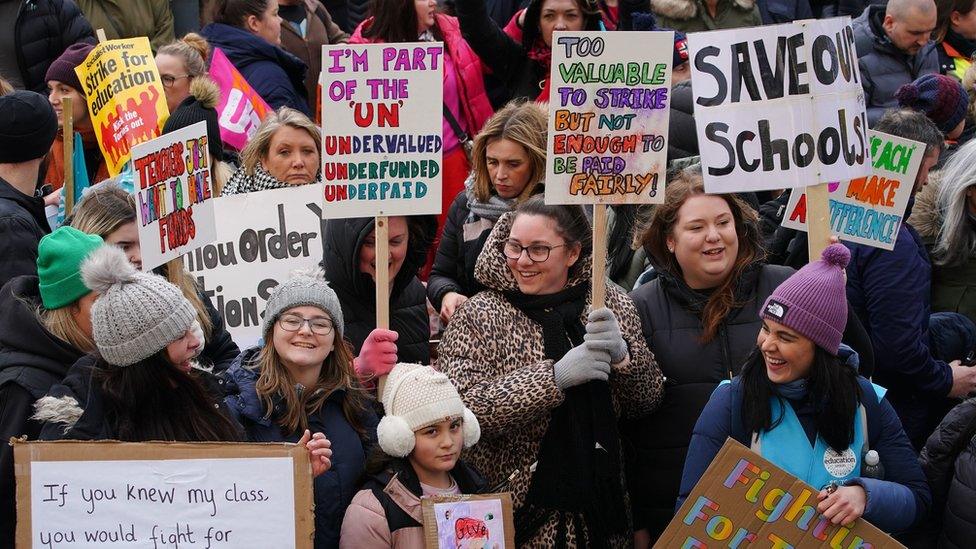
- Published31 January 2023
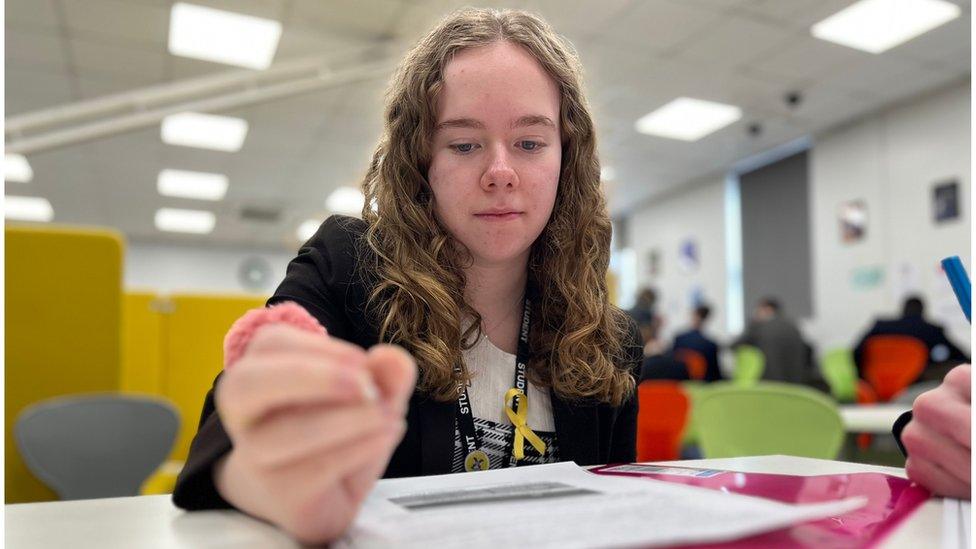
- Published1 August 2023

- Published31 January 2023
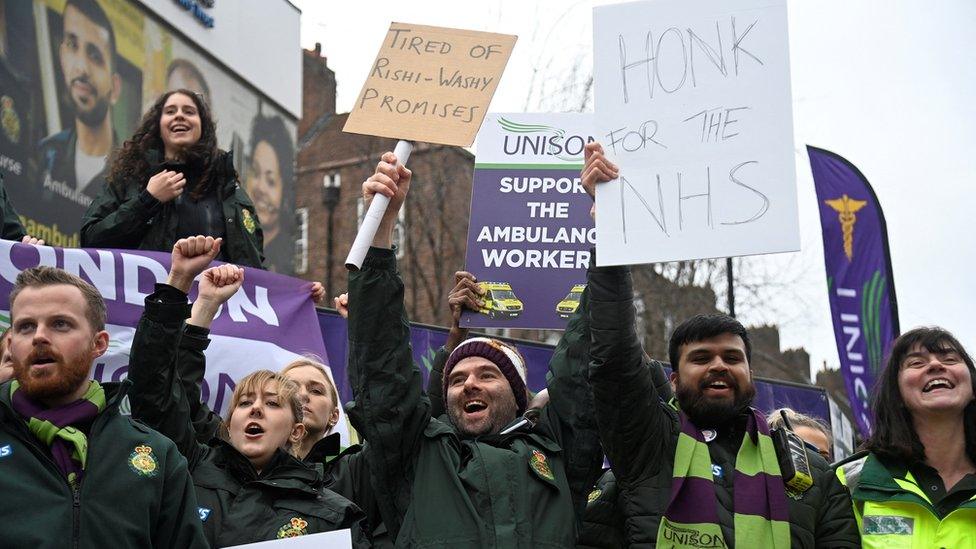
- Published31 January 2023
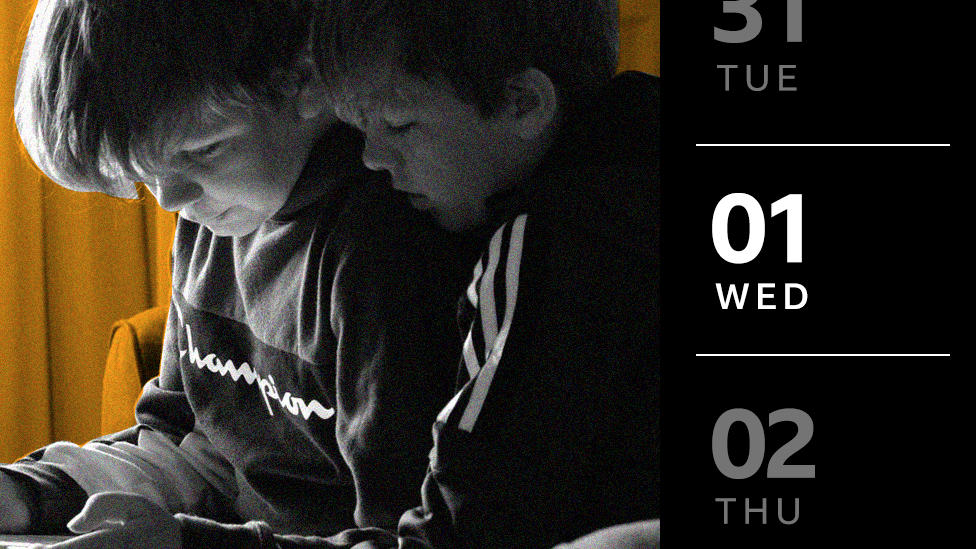
- Published31 January 2023
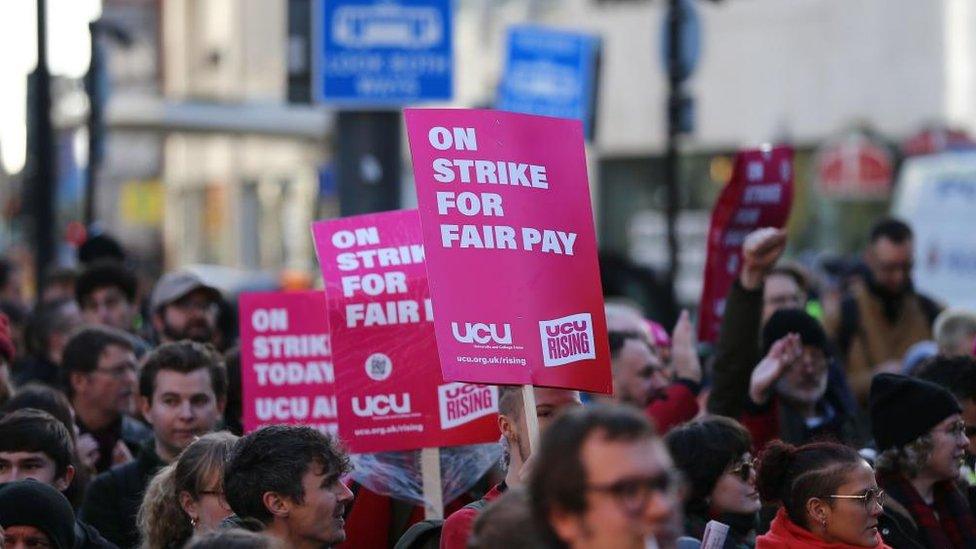
- Published2 February 2023
